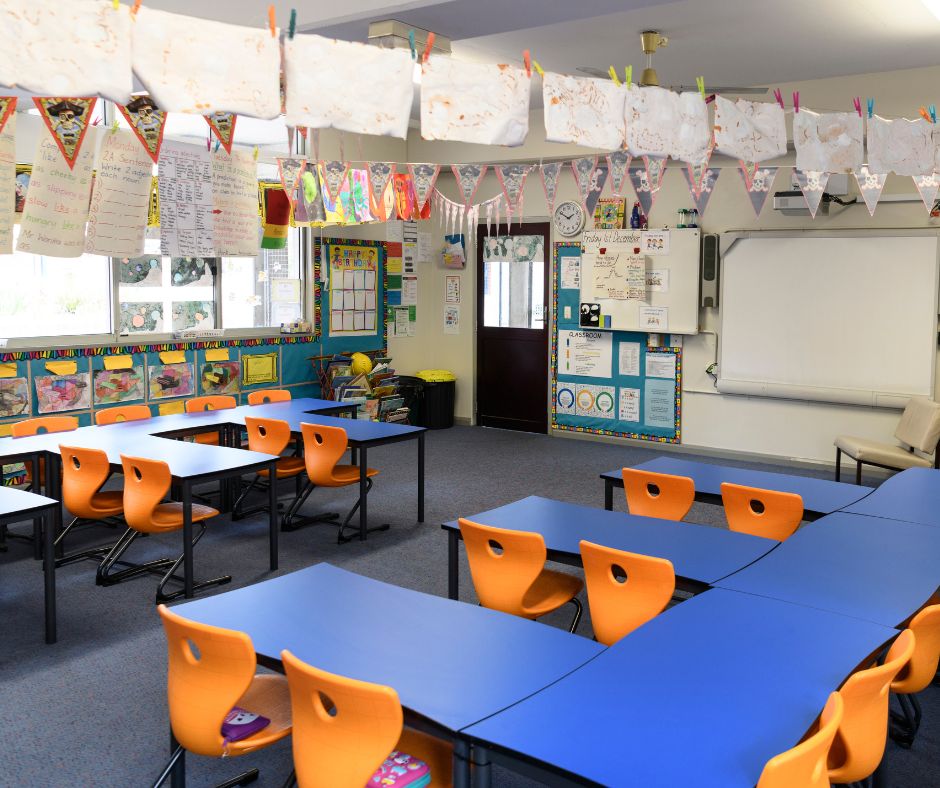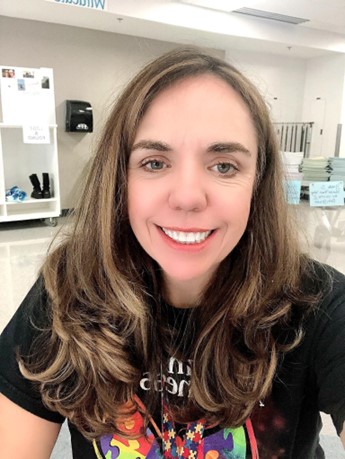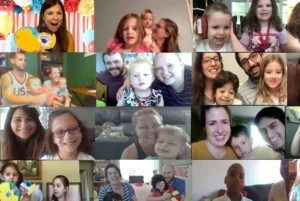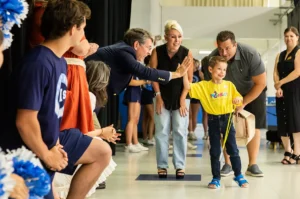Guest blog contributed by Laura Angelus, Special Education Teacher in District 25
So the school year has started and hopefully things are falling into place for everyone! You might have met the new teacher at Open House or received a welcome letter and maybe even exchanged emails. But now it will soon be time for parent conferences. Uh Oh! What will you talk about?
Most districts have their first parent conference in October. You might be comfortable with the way things are going in your child’s classroom and not want to go, but don’t miss this opportunity! There are many important issues to discuss and information to gather that can help establish a better rapport with the teacher and therapists. This is also a great time to learn how you can help with many areas of your child’s development.

The first thing you need to remember is to RELAX! The teacher and therapists are there just for YOU!! I’d say that 50% of my parents seem a little nervous at conferences. Just know that some teachers do not like conferences either and prefer to limit contact to emails. Face to face is not the preferred method these days. But there’s a lot more you can learn just by showing up in person.
Take the time to write down a few questions before you go. It will help you focus and remember things you want to discuss. It’s okay to take notes too! Since visits are getting shorter these days, you want to be sure to remember everything. You might want to ask about the daily schedule, how your child is adjusting, how they are behaving, how their academic progress is going, and what educational programs they are using. Teachers are required to take data to help track IEP benchmarks, so feel free to ask for a quick update on this. While a parent conference is not an IEP meeting, it’s okay to check if there needs to be an extra IEP meeting scheduled, or if things are coming along okay.

If I didn’t show parents around on Open House, I like to show them around my classroom and show them where and how their child works. Ask to see your child’s desk and work bins. This will help you see how your child works best and how structured the work space is. If your child is doing well in the classroom, it’s important to see how the teacher has structured their work systems. If they are not doing well, maybe the teacher needs to put more organization into it.
It’s good to see if your child is making progress- maybe they needed a three-sided work cubby with numbered bins in first grade, but now in second grade they can sit at an open table and their work is just in a folder.
You can also ask what curriculums they are using for reading, math and writing. Some teachers don’t use the same curriculum as the previous teacher and some do, so ask what they are using and how they made this decision. Was it because they felt the last one was too easy for your child, or was it because they only use a specific program? Don’t be afraid to inquire. This is important as you want to be sure your child is getting educated in the best way possible.

Don’t be afraid to ask for homework if this is possible at home. Also, specify the amount – I send homework home Monday through Thursday but don’t expect it back immediately if the child has days where he acts up, or there are other siblings in the household. Work with the teacher to set the right amount of homework and the level of difficulty. The homework from the teacher should reflect what your child is learning in school and will help you know if they are making progress.
I also like to use parent conferences as a time to find out more about family dynamics and traditions. What kinds of things does your family like to do? Do they go on trips? What kinds of hobbies or sports do they enjoy? What does your child like doing? This information is helpful when bringing up topics at school, because we can find ways to relate to your child and engage them more. I once had a child whose family loved to go camping. I happened to have a camping bulletin board set, so we hung that up in our classroom, made a s’more craft, colored our own camping trailer worksheet and the student LOVED it! I never would have known this if I hadn’t discussed it with the parents at conferences. Share interesting things about your family!
Feel free to share things about your family’s culture. It’s important to know that there might be a big holiday coming up in your family, or that relatives are visiting from another country or state. This is something we can discuss and explore with your child, and it helps to know there might be something going on at home that’s exciting or a change in routine for them. I think it’s also important for the teacher to be informed of differences in cultures and traditions so we can acknowledge and be respectful of them. Be patient and don’t assume others know about your culture; instead, use this time to educate and inform others. I sometimes find myself explaining things about school traditions that I assume everyone knows. Once, I had to explain why everyone wore green on St. Patrick’s Day, even though not everyone is Irish!
I like to ask parents about their child’s behavior at home, what they use for rewards and punishments, what key phrases work best, and how they teach their child. If we copy what works in one situation and use it in the other one, the child tends to make more progress. Often a parent will tell me what difficulties they are having at home with a child and I can offer advice or materials. One mother could not get her child to read or do work with her so I made her a reward chart with three tokens, and she came up with rewards she could give at home- toys, ginger ale, getting to pick a movie, etc. One small thing like that really helped her and it was easy for me to make another visual. Don’t be afraid to ask for help! That is our job.

Lastly, be sure to bring up practical things depending on the age of your child- maybe toileting tips, eating tips, hygiene, etc. Sharing ideas with the teacher is good for both sides. If there are therapists involved in the parent conference be sure to ask them questions or reach out to them for more resources. Often the therapists at my school attend only conferences where the parent requests them or prioritize where they see the most need, so speak up if you would like them there.
Most importantly, remember that we are here to help your child and we should work together as a team. A successful parent conference is the perfect time to work on this goal. Be sure to take advantage of this time and meet with the teacher. Good luck!

About Laura Angelus
Special Education Teacher in District 25
C.I.T.Y. of Support is grateful to Laura for her participation as one of collaborative blog contributors. Please note that the information and opinions presented here are specifically her own. The purpose of C.I.T.Y. of Support’s collaborative blog is to help connect families and professionals to different community resources, and we do not specifically endorse any particular recommendations provided herein.









